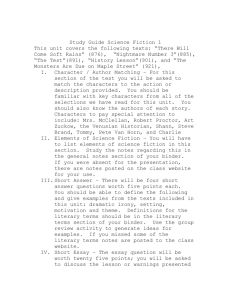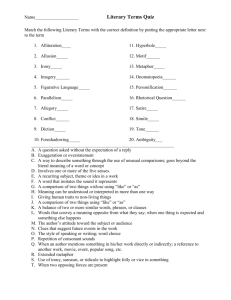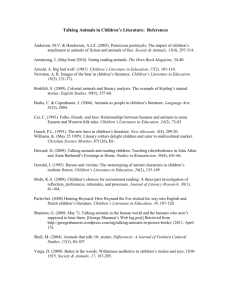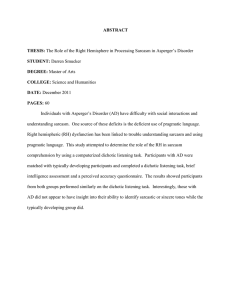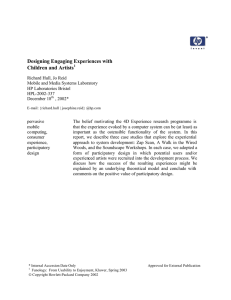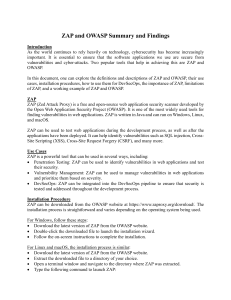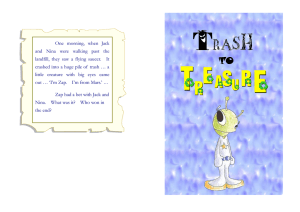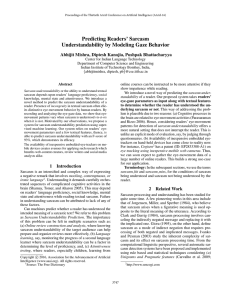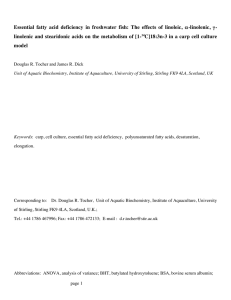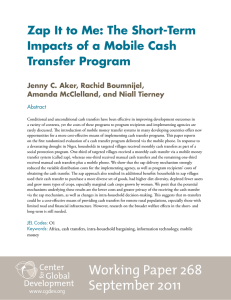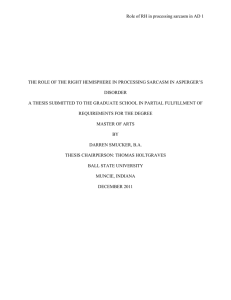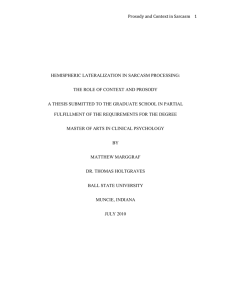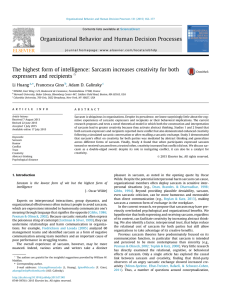Literary Terminology #6
advertisement
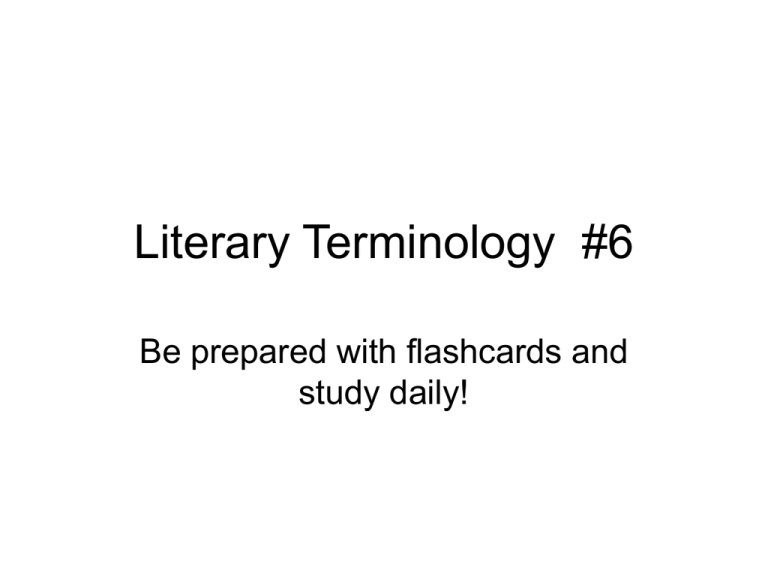
Literary Terminology #6 Be prepared with flashcards and study daily! Sarcasm • Sarcasm What is it? • Examples • "How unselfish you are!" said the girl as her brother took the biggest piece of cake. • Mark Twain once said that the coldest winter he ever spent was a summer in San Francisco. • Answer The act of making fun of a person to hurt her or his feelings; harsh or bitter irony. A sneering or cutting remark; ironical taunt. Science fiction ZAP Time (Zeros are prohibited!) ______________________ did not have his/her homework in Reading or Math today and has been assigned 30 minutes after school on Tuesday ____________ or Thursday_______________ from 2:50-3:20. Thank You, Mrs. Cashwell ZAP Time (Zeros are prohibited!) ______________________ did not have his/her homework in Reading or Math today and has been assigned 30 minutes after school on Tuesday ____________ or Thursday_______________ from 2:50-3:20. Thank You, Mrs. Cashwell Script • The text of a play, motion picture, or broadcast Setting a Purpose • The process of establishing specific reasons to read a literary work Structure • The way in which literature is put together Sequence • The order in which events occur or in which ideas are presented Scene • A section presenting events that occur in one place at a time Rhythm • The pattern or flow of sound created by the arrangement of stressed and unstressed syllables in a line of poetry. Speaker • The voice that talks to the reader Stanza • A group of lines within a poem Skimming • The process or reading quickly to identify the main idea of a work or passage. Speech • A prepared talk given in public Stage directions • The instructions to the actors, director, and stage crew Scenery • The painted backdrop or other structures used to create the setting for a play. Simile • A comparison of two things that have the same quality in common Short story • A brief work of fiction that can usually be read in a single setting Stage • The level and raised platform on which entertainers usually perform Story Map • A visual organizer that helps a reader understand a work of literature Stereotype • A generalization about a group of people, in which individual differences are disregarded
